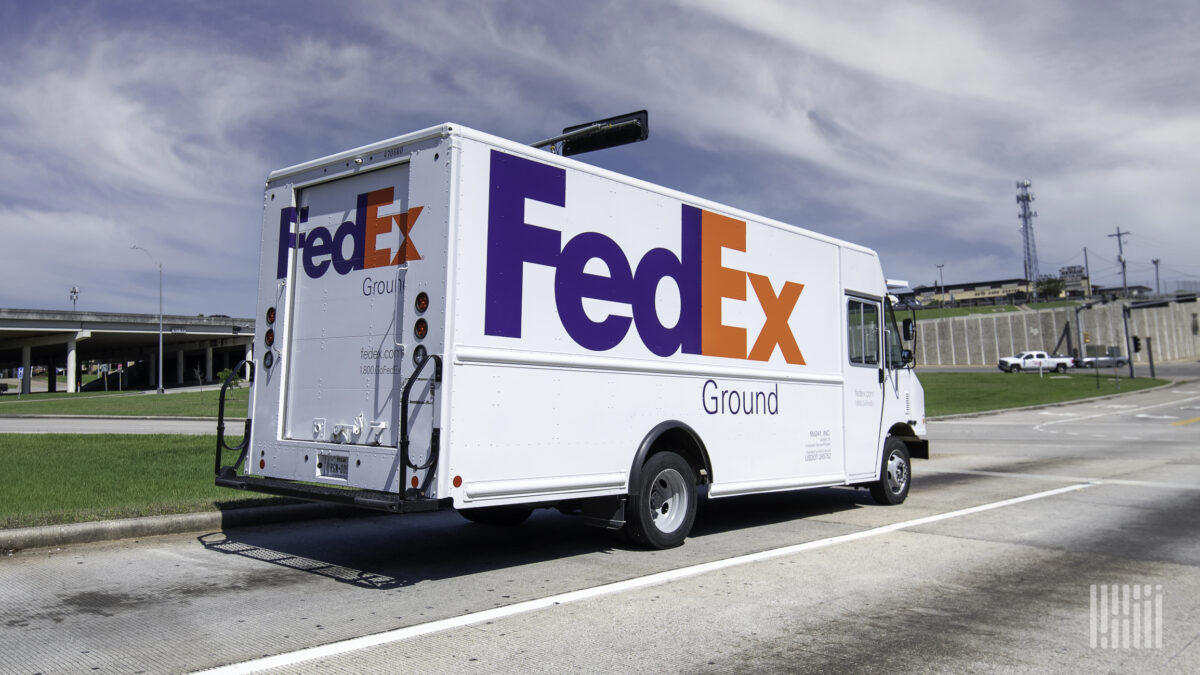
Starting June 1st, 2023 Our warehouse fee will be $0.65/cubic foot per month
In effort to lower the warehouse storage fee during inflation, we have went narrow aisle racking.This construction took us four months but the project is finally completed. With narrow aisle racking, we are able to drop storage by 24%.We as partners will go through this inflation together.
03/13/2023
 FedEx and UPS are wooing shippers from the regional parcel carriers with ample discounts (Photo: Jim Allen)
FedEx and UPS are wooing shippers from the regional parcel carriers with ample discounts (Photo: Jim Allen)
Sources say that UPS Inc. and FedEx Corp. have been taking market share from regional parcel delivery rivals through price discounts. While taking market share from regional and national carriers is not new, the aggressiveness of the national carriers is different than in the past. According to a top regional carrier source, Gap Inc., Williams-Sonoma Inc., French retailer Sephora, a unit of LVMH, and Nordstrom Inc. are among shippers who have defected. However, much of the shifting is taking place in a climate of excess capacity, which is not seen since before the pandemic.
Satish Jindel, the president of ShipMatrix, believes that overcapacity rules the parcel market. According to ShipMatrix data, the United States Postal Service processes only 55% of its published daily capacity of 60 million parcels. FedEx's fiscal 2023 third-quarter report, which will be released on Thursday, will likely confirm that volumes will remain weak, according to Jindel. Jindel predicts that the market will remain unbalanced throughout the remainder of 2023 and into 2024. As a result, he expects shippers to exert additional pressure on the carrier surcharges implemented over the past three years.
Since the pandemic, the market has become saturated with dozens of parcel carriers of different sizes. This trend may be advantageous for shippers, but it has raised consumer familiarity concerns as the majority of the new carriers are unknown to them. According to one source, shippers would prefer UPS and FedEx over regional carriers that consumers are unfamiliar with if the prices were the same.
Regional carriers typically offer lower prices than national carriers due to lower overhead, but if shippers defect and lose volume-based discounts from FedEx and UPS, the price disparity can widen. As shippers return more packages to national carriers, they are eligible for discounts that they may have forfeited when they fled. This significantly increases the incentive to switch carriers.
Shippers are abandoning regional parcel delivery competitors for UPS and FedEx due to service consistency, but there is a risk of traffic congestion if the Teamsters union goes on strike by August 1. According to a statement, UPS competes for package volume that fits its network capabilities and provides value to new and existing customers. FedEx offered no comment on the matter.
Negative report from Moody’s
Moody's Investors Service downgraded the debt ratings of the largest regional carrier in the United States, newly rebranded as OnTrac, earlier this month. Prior to the merger, the carrier was known as LaserShip; Moody's lowered its corporate rating to Caa1 from B3 and its probability of default rating to Caa1-PD from B3-PD. According to Moody's, Caa-rated companies are "of poor standing... and high credit risk."
American Securities LLC, a private equity firm, merged Eastern carrier LaserShip and Western carrier OnTrac in 2021 to form a third business-to-consumer (B2C) national delivery network to compete with national carriers. Moody's reports that excess capacity and weak demand have led to "very high financial leverage, weak liquidity, and moderate scale" in the competitive residential e-commerce delivery market.
According to reports, American Securities paid substantial sums for both companies and entered the integrated era "levered for perfection," but the company's financial situation has not gone as planned. The Moody's report was released on March 2, a day after LaserShip-OnTrac CEO Mark Holifield abruptly resigned after 17 months and was replaced by Jim Duffy, the current CEO of FleetPride, the largest distributor of truck and trailer parts in the United States. According to a source, Holifield was not responsible for the two acquisitions and the subsequent increase in leverage.
Moody's predicts that LaserShip's leverage will remain high and liquidity will remain weak through 2023 as a result of sluggish consumer spending, which will have an impact on industry-wide delivery volumes. Despite the fact that the expansion of LaserShip's network capacity in 2022 enabled the company to operate successfully during the peak season, package delivery volumes were lower than anticipated in the second half of the year, negatively impacting earnings. Moody's anticipates that LaserShip's volume will increase throughout the year as its network expands and it gains new customers. The company's ability to improve operating leverage will be hampered by higher interest expenses and slower volume growth in 2023, resulting in a negative free cash flow.
Given the weaker macroeconomic environment, Moody's negative outlook reflects the possibility that LaserShip will be unable to "improve earnings or reduce its cash burn over the next 12 months." Persistent weakness will increase the risk that the company's capital structure at its current high leverage level is unsustainable. In addition, the agency warned that LaserShip's capacity to "absorb adverse operational developments" may be hampered as a result of these developments.

Hot News
08/05/2024

Hot News
02/23/2023

Hot News
02/23/2023

Hot News
02/06/2023
Hot News
02/07/2023